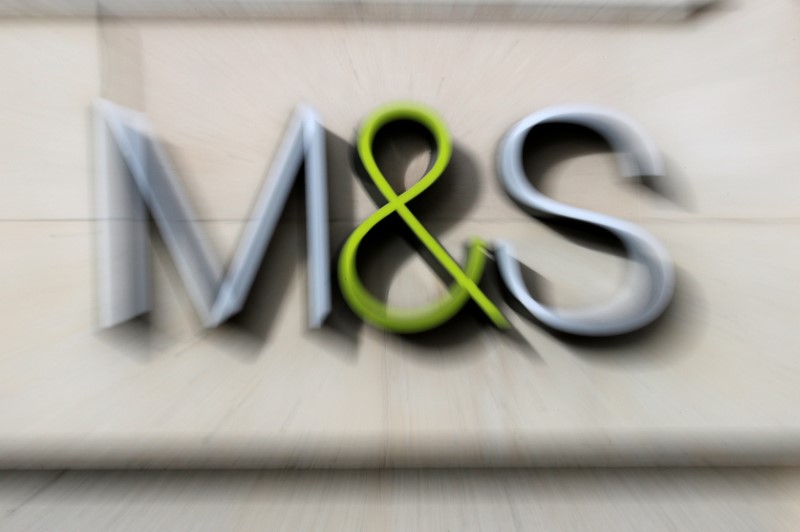(Bloomberg) -- Equity investors accustomed to ruling the corporate agenda are facing a gut check as big-name brands from telecommunications to consumer cyclicals pacify creditors with moves that signal a shift in the stock-bond power balance.
The latest examples: Marks & Spencer Group (LON:MKS) Plc said it would finance a $1 billion investment with new shares and cut its dividend; Vodafone Group (LON:VOD) Plc issued bonds that will be repaid in stock instead of cash in a few years’ time, sparing balance-sheet damage in the near-term.
One takeaway is intuitive enough. The equity of levered or cyclical companies is in the firing line late as bondholders play defense late in the business cycle.
The harder part is sizing up this brewing shift -- and making money from it. The new-year rally is feeding demand for risky balance sheets. Hedge funds are struggling to find short bets en masse. And what’s good for bondholders can boost equity peers over the long haul.
In short, the tug of war between equity and debt is far from clear-cut.
“The situation for equity investors is getting trickier,” said Roelof Salomons, chief strategist at Kempen Capital Management NV, who’s a fan of equities with strong balance sheets. More treasurers are “running the company for the bondholder and not for the equity holder,” he said.
There are two things market players largely agree on right now. Expect more bad news from cyclical industries with leverage, low growth and margin pressure. And it’s better for treasurers to clean up debts in the good times.
With the memory of the fourth-quarter bloodbath fresh, belated balance-sheet clean-ups could get a company “punished twice,” according to Stephen Repoff, analyst at GW & K Investment Management.
“It makes sense to do some of that dirty work now when expectations are so high,” said Repoff. The market “might give you a pass,” he said.
As M&S Chief Executive Officer Steve Rowe unveiled a plan for a share-dilutive rights issue to fund a joint venture with Ocado (LON:OCDO), he said a foreboding macro climate called for conservative finances.
“We have to make sure our balance sheet is appropriate and our dividend is sustainable,” Rowe said at a press conference last week. “These are uncertain times and we wanted to make sure we had something we could grow on.”
Meanwhile, Vodafone managed to please both shareholders and bondholders, for now. Tuesday it announced a financing package which includes a potential stock buyback as the securities reach maturity in 2021 and 2022.
At Fidelity International, money manager Kristian Atkinson is avoiding tobacco companies faced with higher funding costs that will eat into growth. Retailers with bloated balance sheets are also going to be hard-pressed to meet deleveraging demands as the cycle turns, he said.
Slowing cash flow at Coca-Cola (NYSE:KO) Co., PepsiCo (NASDAQ:PEP) Inc. and Diageo (LON:DGE) Plc may prompt dividend cuts at the beverage makers, according to Bloomberg Intelligence analysts Kenneth Shea and Duncan Fox.
European names that have taken equity unfriendly actions to placate creditors in recent months include Kier Group (LON:KIE) Plc, Anheuser-Busch InBev NV and Leoni AG.
“There’s too much leverage and it has to come down as we enter the end of the cycle,” said Georges Gedeon, founder of London hedge fund Antler Capital Partners LLP. He’s on the look-out for capital-structure trades -- like bidding up bonds at the expense of equity -- on speculative-grade retailers and auto-parts companies with rising financing costs.
Such late-cycle trades work best when corporate credit risk rises, Gedeon said.
Indeed, those looking for trades to exploit a deleveraging cycle will need to be patient.
Kevin Muir, a strategist at East West Investment Management Co., also likes trades that short stocks in riskier companies while holding their bonds. The problem is: it may be too soon to put those bets on.
“I still think that this is the story,” Muir said. “But so far, it hasn’t worked. The market has been chasing the levered-up stocks.”
Despite investor concerns about share dilution and leverage, shorting indebted companies in Europe is a losers’ game as companies with weak balance sheets up 16 percent since December lows. What’s more, prospective equity dilutions in recent cases are modest relative to market capitalization while lower stock prices compared to last year’s peak are flattering dividend yields across the board.
The story may play out ever-so gradually. Higher debt-refinancing costs may spur earnings-per-share downgrades in Europe in 2019, Bank of America Corp (NYSE:BAC). warned earlier this year.
“The penny hasn’t dropped yet, there needs to be a more aggressive reduction in balance sheets and leverage, and that probably will mean some pain for equity holders,” said Sajiv Vaid, another money manager at Fidelity International in London.
And the interests of shareholders and bondholders may yet align.
Edmund Shing, global head of equity derivative strategy at BNP Paribas (PA:BNPP) SA, says dividend cuts can strengthen a company’s finances and give it resources for expansion or strategic turnarounds.
“If the return on these new investments exceeds the cost of capital, then this is a logical step and does not necessarily penalize the equity shareholder, at least in the long-term,” Shing said.
